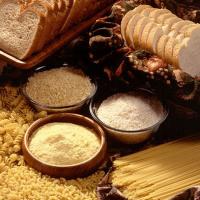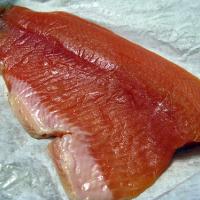Lose Weight > Weight Loss Tips > Low Carb > Carbohydrate absorption: Food processing, Meal Planning and Carb Blockers
Carbohydrate absorption: Food processing, Meal Planning and Carb Blockers
 by Tanya Zilberter, PhD
by Tanya Zilberter, PhD
What influences carbohydrate absorption: fibers, nutrient interaction, and anti-nutrients.
Carbohydrate absorption: fibers, nutrient interaction, and anti-nutrients.
Carbohydrate absorption in the small intestine is theoretically considered to be complete. However, in reality foods do not yield pure glucose and starch. Many factors influence carbohydrate absorption.
For one thing, insoluble fibers surround starchy food particles preventing the treatment by enzymes and thus reducing the amount digested. Soluble fibers also reduce the rate of absorption through slowing gastric emptying and forming a barrier between food bulk and the small intestine. Starch-protein interaction (as seen with gluten in wheat products) and starch-fat interactions have been shown to reduce the rate of absorption. Plus, fat is known to slow gastric emptying.
There is a number of the so-called anti-nutrients in foods, for instance lectins, phytates and tannins, have been shown to reduce the digestibility of foods. For example, phytate can bind calcium thus reducing the rate of starch digestion.
Food processing
Food processing greatly influences carbohydrate digestion by modifying the structure of the food and its components. Food and cooking technologies historically aimed to making the food more available for digestive enzymes. Examples are starch gelatinization during boiling and baking and increasing the surface area by reducing the particle size during milling, crushing or flaking. However, processing may also reduce digestibility as seen in the production of pasta, resulting in a more compact physical structure.
Meal planning and carb blockers.
Studies showed that increasing the frequency of meals and reducing food intake during single meal helps to prolong the process of absorption thus decreasing the rate of absorption. This can perhaps explain some of advantages of frequent small meals versus a few square ones as it comes to weight management.
The inhibitors of enzyme providing carbohydrate absorption have been developed for the treatment of diabetes, which reduce the rate of carbohydrate digestion in the small intestine. One example of this class of substance is acarbose, which inhibits carbohydrate digestion and absorption of starch, sucrose and maltose.
| Low Carb Diets and Cholesterol. Research and Testimonials
| Meal Frequency Increase Prolonges Carbohydrate Absorption
| Low Carb and Calories. Studies
| Before You Choose a Low Carb Diet
| No one benefits from refined carbohydrates.
Related Articles
-
Sugar Free Diets
More and more people are opting for sugar free diets.
-
How to Choose a Low-Carb Diet Plan
The
-
Can You Handle a Low Carb Diet?
Tired of carrying around all those extra pounds? Well, if y
-
Cooking Guidelines For Low Carb
Around the world individuals are paying a lot more attentio
-
Calorie Restrictions
Calorie restrictions are often necessary for weight los
-
Low Carb Chicken
Low
- DON'T MISS
- Eating Low Carb? Be Informed About Mad Cow
- The South Beach Diet Online
- How to lose weight fast: Healthy recipes for healthy weight loss
- Complex Carbs For Rookies
- Sugar Free Cake
- "Cookie Cutter" Low Carb Diet Plans Explained
- Losing Weight With Low Carb Diets - Tips You Need To Know
- How to Create a Low Carb Diet
- Low Carb, Low Fat Chicken Fingers
- Low-Carb Diets and Cheese




